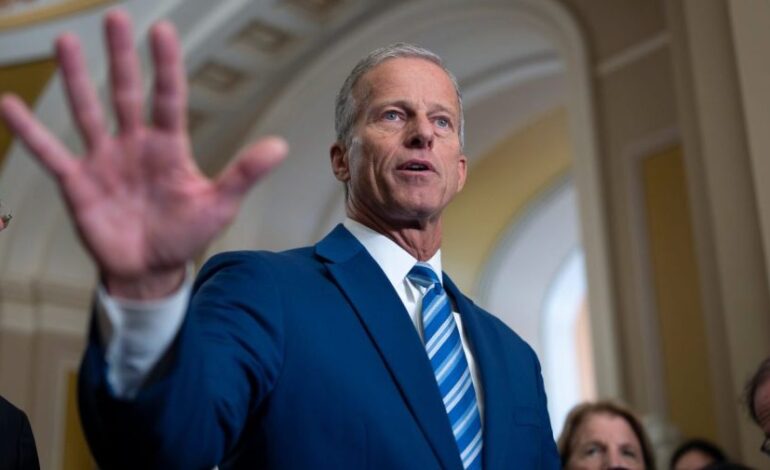Thune Criticizes Kennedy’s Medical Advice During Interview

Senate Majority Leader John Thune (R-S.D.) expressed strong disapproval of Health and Human Services Secretary Robert F. Kennedy Jr.‘s medical advice during a recent interview. Thune stated that he would not heed Kennedy’s recommendations even if he were a woman, referencing controversial claims made by Kennedy that have also drawn support from former President Donald Trump.
In a conversation on March 15, 2024, with Ali Vitali, a senior correspondent for MSNBC, Thune was asked about the Republican Party’s direction concerning health policy. Thune’s remarks came amid growing scrutiny of Kennedy’s statements regarding vaccines and their safety, which have sparked significant debate within political and public health circles.
Thune’s comments underscore a broader division within the Republican Party concerning health recommendations and the influence of prominent figures like Kennedy. His assertion reflects a skepticism towards public health guidance that diverges from mainstream health experts, particularly in light of the COVID-19 pandemic and ongoing discussions about vaccination.
The interview highlighted the tension between traditional Republican values and the more controversial positions taken by some party members. Thune’s dismissal of Kennedy’s advice suggests a desire to maintain a clear distinction from fringe viewpoints that may not align with established medical consensus.
Kennedy has emerged as a polarizing figure, particularly for his vocal opposition to vaccines, which has resonated with a segment of the population skeptical of government health directives. His statements have also gained traction among certain Republican leaders, including Trump, who has previously expressed support for Kennedy’s views.
As the GOP navigates its health policy strategy, Thune’s comments signal a potential rift. It raises questions about how the party will reconcile differing perspectives on public health, especially as it prepares for upcoming elections and faces challenges related to voter trust in health institutions.
Thune’s remarks may further complicate discussions around health policy within the party. The contrasting views on Kennedy’s influence could impact not only party unity but also public perception as Americans continue to prioritize health issues in the political sphere.
As the political landscape evolves, the GOP will need to address these internal divisions. The consequences of this discourse will likely reverberate beyond the current election cycle, shaping the party’s identity in relation to health care and public trust.






